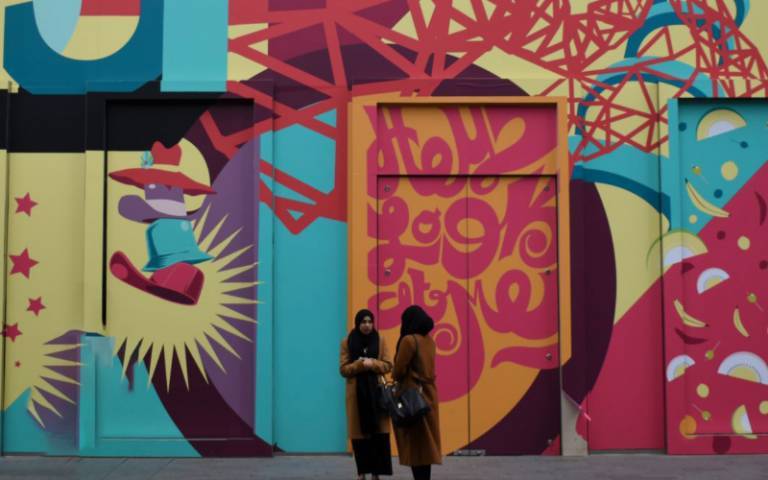Urban Prosperity: towards new concepts, methods, and pathways to impact for place-based flourishing
Jump-starting a new research programme on urban prosperity, understood through community-led approaches to place-based flourishing.

1 September 2021
Cities are frequently portrayed as engines of prosperity, whether in discourses about the Sustainable Development Goals, in the UK’s ‘levelling up’ agenda, or in debates on ‘building back better’ post-Covid. However, such dominant understandings of urban prosperity often lack a critical focus on intra-urban inequalities and various communities’ unique aspirations. There is therefore a need for co-produced knowledge about urban quality of life and for new policy agendas based on local visions for better urban futures.
This project aimed to set out an intellectual agenda on Urban Prosperity, understood through urban communities’ own perspectives and visions for flourishing. This project allowed the team to jump-start a new research programme on Urban Prosperity (UP), understood through community-led approaches to place-based flourishing. It has enabled the team to build collaborations within UCL and with external academic and policy experts and are in the process of developing a larger-scale funding proposal. The Grand Challenges funding also allowed for the team to build a solid working group that will form the basis of an Urban Prosperity Hub hosted within the IGP.
Over the past year, the project team have organised numerous internal workshops to develop three working papers (WPs) synthesising the current knowledge and debates on UP and outlining our joint contribution. WP1, which is close to publication, focusses on conceptual development, WP2 on methodologies, and WP 3 – which still requires more work – focuses on pathways to impact. The team have developed a proposal for an edited volume in the UCL Press series ‘Global Prosperity in Thought and Practice’. The structure of the volume follows the three-pronged approach of the working papers.
In addition, the project organised two panels at the Development Studies Association Annual Conference in July 2022: ‘Urban Imaginaries of Prosperity’ and ‘Urban Citizen Science and Community-based Knowledge Production’ – the insights from these informed the Working Papers, and key contributors will be invited to be part of the edited volume. Co-I Dr Osuteye also attended UN-Habitat’s World Urban Forum (WUF) in Katowice Poland and hosted a side event on ‘Advancing Urban Resilience in Africa’ on the 28th of June 2022. The event featured a panel discussion which highlighted innovations and participatory approaches through cities and urban centres that can build resilience in the post-COVID context. Reflections on developing shared visions of prosperity which are central and relevant to the arguments of this project’s WP2 were also shared.
These publications have consolidated conceptual thinking, methodological best practices, and pathways to impact across research sites, thereby strengthening the coherence of our cross-departmental, interdisciplinary collaboration. At the same time, networking with academic, community and policy counterparts through the external events will lay foundations for future partnerships. The work has positioned UCL at the forefront of the emerging Urban Prosperity research field and enabled the applicants to build a strong case for future funding.
There has also be an indirect social impact that arises from the project team's collective amplification of the value of community voices and perspectives in the development of visions of urban prosperity. As the project leads noted: "The majority of case studies are drawn from our own previous or ongoing research, which allowed us to re-engage with local community groups, actors, and research partners (e.g. in Tanzania, Hong Kong, and Lebanon), and to harness the long-term value and ethic of knowledge co-production with communities abroad."
 Close
Close


